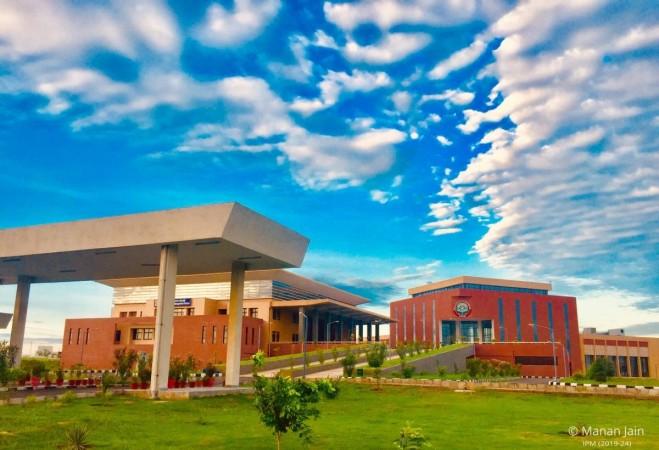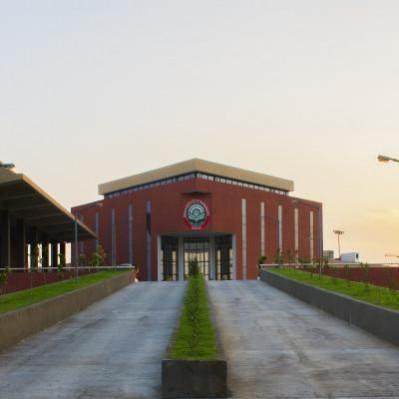
Sustained government-led probes into the operations of the Indian Institute of Management, Rohtak (IIM Rohtak) have intensified in recent weeks, sparking renewed debate over whether the Ministry of Education is exceeding its statutory authority. Officially, the new inquiry is framed as an institution-wide review under Section 10A of the Indian Institutes of Management Act, 2017 (amended in 2023). However, sources within IIM Rohtak suggest that, in practice, the Director has been singled out—a situation that critics argue effectively undermines the institute's autonomy.
Despite an earlier Comptroller & Auditor General (CAG) audit that reportedly exonerated IIM Rohtak of any financial improprieties, the Ministry has again invoked Section 10A to revisit alleged irregularities dating back several years. Observers say the act was intended to provide government oversight of overall institutional functioning, yet the spotlight appears to have settled squarely on the Director's actions—and on prior questions surrounding his academic qualifications.
Expanding timeline of the case
2019–2022: Several complaints from former staff members—who now call themselves "RTI activists"—claimed the Director did not properly submit proof of his Bachelor's degree. The Ministry issued a show-cause notice in 2022, prompting the Director to seek relief in the High Court. The court granted an interim order restraining further adverse action until final resolution of the matter.
March 2023: The CAG conducted a special financial audit of IIM Rohtak at the Ministry's request. Its final report stated "no irregularities," effectively closing the original complaint.
Late 2023–Early 2024: Despite the CAG's clearance, the Ministry directed the Principal Chief Controller of Accounts to conduct an additional "internal" review, reportedly expanding its scope beyond finances to include operational and administrative areas.
March 2025: Citing Section 10A (effective from mid-2023), the Ministry issued two directives:
- March 5: Announcing a fresh investigation into IIM Rohtak's financial records and compliance, as well as revisiting the Director's qualification credentials for the 2017–22 period.
- March 13: Ordering that the Director be placed on long leave or suspended and requiring him to vacate the campus, pending the ongoing review.
Autonomy under scrutiny
Under the IIM Act, 2017, the Board of Governors is the principal executive authority. Generally, such boards supervise audits and inquiries, ensuring institutional autonomy. However, recent ministerial orders appear to have bypassed the Board's usual processes, leading many within the institute to question if the government's actions erode the very autonomy the Act enshrines.
Legal experts note that Section 10A—introduced in 2023—envisions a broader review of an institute's functioning. Yet applying it to alleged events from 2018–19 could be construed as retroactive use of the amended law, a practice often viewed skeptically by courts.
Overlapping litigation and alleged targeting
Several High Court cases touching on the director's appointment and qualifications remain pending, and interim judicial orders continue to protect him from certain Ministry actions. Critics contend that launching a new, institution-wide inquiry now—focused on many of the same issues—risks sidestepping or duplicating matters already under the court's review.
Despite the official stance that the inquiry is into overall institutional matters, sources within IIM Rohtak report that the director has been singled out in practice. One senior faculty member, who preferred anonymity, indicated that "the Director is bearing the brunt of the probe," fueling concerns that a government measure "nominally aimed at the institution has effectively become personal."
Former staffers' role and staff support
Several sources also point to disgruntled former employees, who are said to be leading orchestrated complaints against the institute's leadership while identifying themselves as RTI activists. Insiders speculate these individuals are acting "at someone else's behest," intensifying pressure on the institute's top administration.

"This institution has been built over years, transforming from a smaller campus into a globally respected center of excellence," said one senior administrator. "Many faculty and staff here believe the director's leadership was key to that success—and they're upset these unverified accusations from former staffers and certain external interests are allowed to overshadow the institute's achievements."
Several senior staff members, according to internal discussions, plan to stand behind the Director. They cite dissatisfaction with what they perceive as an "overreach" by the Ministry and with repeated allegations from individuals no longer employed at IIM Rohtak.
Director declines comment
When approached for clarity on the evolving situation, the director declined to comment, citing pending litigation. "No comments, please. The matter is subjudice, and I have no desire for media intervention," he said. A formal request for the Ministry of Education's statement went unanswered as of publication, but officials have previously indicated they are obligated to act on any credible reports of mismanagement.
Questions about the CAG's role
A puzzling element remains the Ministry's insistence on re-opening issues after the CAG—which holds constitutional authority to audit government finances—offered a clean slate in March 2023.
"CAG findings are usually conclusive unless substantially new evidence emerges," notes a legal analyst in Delhi. "In normal circumstances, if further doubts exist, one would expect coordination with the Board of Governors rather than immediate directives suspending or marginalizing a single individual."
Broader implications for Indian higher education
The controversy raises a broader concern: could extended government scrutiny chill the independence of other prominent institutions? With IIMs traditionally lauded for strong self-governance—and the Ministry explicitly represented on their boards—this situation may portend a shift toward direct oversight, even in cases seemingly resolved by a statutory audit.
Should the courts conclude that these measures exceed the boundaries of the law, officials behind the orders could face a firm judicial rebuke. Policy analysts suggest that the dispute's outcome will clarify how far the government can go in probing IIMs without eroding their autonomy—a principle many see as pivotal to the institutes' global reputation and standing.
For now, the day-to-day functioning of IIM Rohtak continues under a cloud of uncertainty. Multiple overlapping legal and administrative proceedings hang in the balance, setting the stage for a test of whether India's renowned management institutions can maintain their autonomy when confronted with centralized authority and politicized allegations.
















